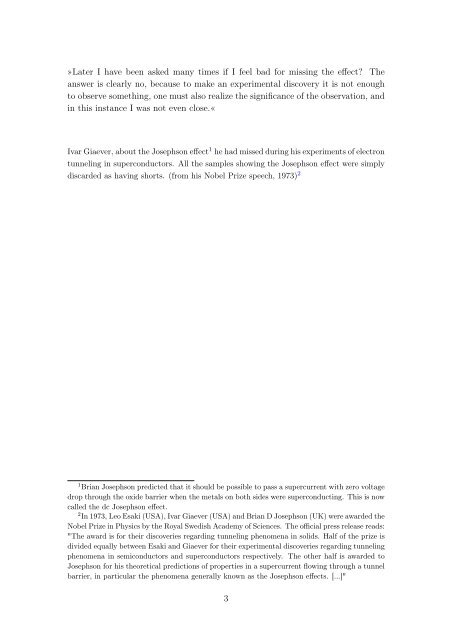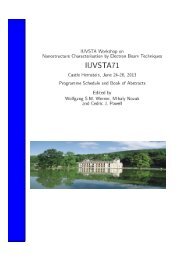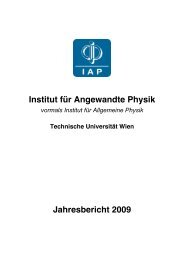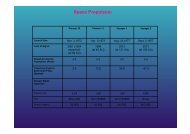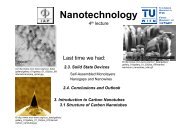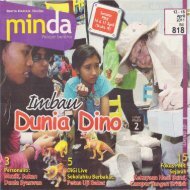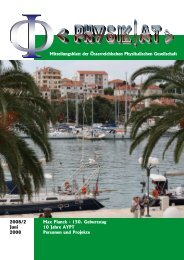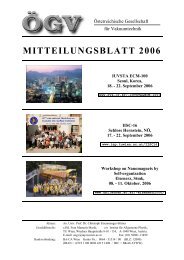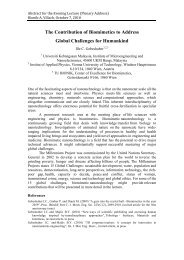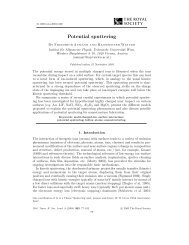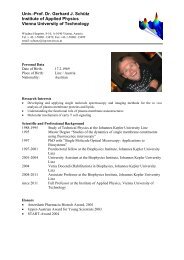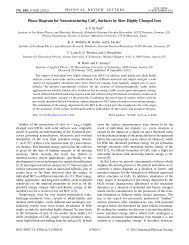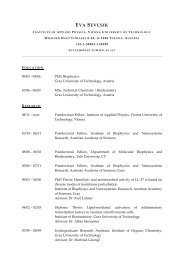Thesis-PDF - IAP/TU Wien
Thesis-PDF - IAP/TU Wien
Thesis-PDF - IAP/TU Wien
You also want an ePaper? Increase the reach of your titles
YUMPU automatically turns print PDFs into web optimized ePapers that Google loves.
»Later I have been asked many times if I feel bad for missing the effect? The<br />
answer is clearly no, because to make an experimental discovery it is not enough<br />
to observe something, one must also realize the significance of the observation, and<br />
in this instance I was not even close.«<br />
Ivar Giaever, about the Josephson effect 1 he had missed during his experiments of electron<br />
tunneling in superconductors. All the samples showing the Josephson effect were simply<br />
discarded as having shorts. (from his Nobel Prize speech, 1973) 2<br />
1 Brian Josephson predicted that it should be possible to pass a supercurrent with zero voltage<br />
drop through the oxide barrier when the metals on both sides were superconducting. This is now<br />
called the dc Josephson effect.<br />
2 In 1973, Leo Esaki (USA), Ivar Giaever (USA) and Brian D Josephson (UK) were awarded the<br />
Nobel Prize in Physics by the Royal Swedish Academy of Sciences. The official press release reads:<br />
"The award is for their discoveries regarding tunneling phenomena in solids. Half of the prize is<br />
divided equally between Esaki and Giaever for their experimental discoveries regarding tunneling<br />
phenomena in semiconductors and superconductors respectively. The other half is awarded to<br />
Josephson for his theoretical predictions of properties in a supercurrent flowing through a tunnel<br />
barrier, in particular the phenomena generally known as the Josephson effects. [...]"<br />
3


